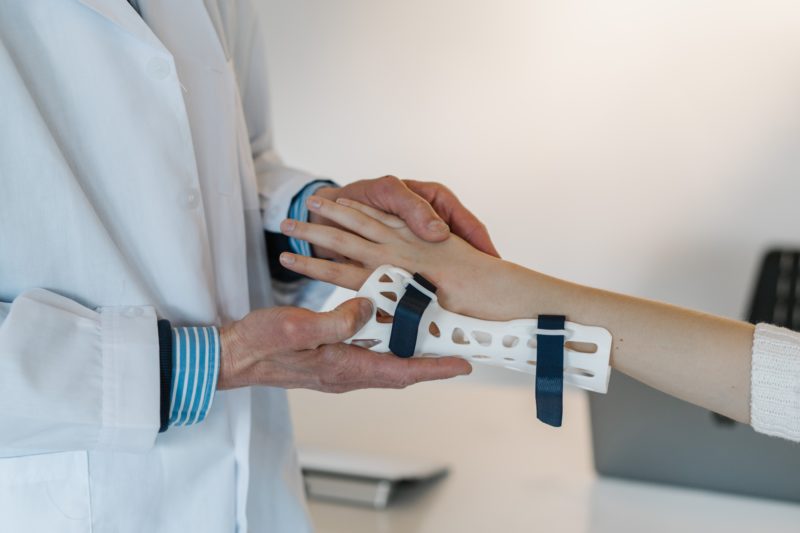
Care of Casts and Splints

When you suffer a bone or tissue injury, your doctor may suggest using a cast or splint to help you heal from your injury. In a bone injury or tissue injury, the doctor may want to reposition any broken bones or damaged tissue back into a normal position and then apply a cast or splint to keep the area immobilized and keep the bones and tissue in place. Sometimes splints and casts are used after surgery or other operations to keep areas immobilized while they heal. Splints provide less support than casts but are more adjustable. Both casts and splints also reduce swelling and pain and prevent muscle spasms. If you are in need of a cast or cast and splint care, reach out to us at New York Sports Medicine Institute for our orthopedic surgeon in Paramus, NJ who can help!
Types of Casts and Splints
Casts are typically custom made to fit around your injured area, where splints can be custom made or ready-made splints that can be adjusted to your body. The hard supportive layer for casts and splints are generally made out of fiberglass or plaster materials. Additionally, a protective layer of padding or cotton is used between the supportive layer and your skin. The supportive structure of the casts and splint should cover the injured area and extend below and above the injured area. Our orthopedic surgeon in Paramus, NJ will help you with the exact placement and materials of your casts and splint that would best suit your needs.
Warning Signs with Casts and Splints
Typically the first 48 hours of your splints application will be especially prone to swelling from injury and “filling out” the cast. This can cause pain and tightness in the area, especially if left untreated. To help manage this swelling, and any swelling that might be present while you have your cast, here are a few things you can do:
- Elevate the injured area: elevating the area helps drain fluid out of the area and keep blood moving out.
- Icing the cast: using an ice pack to wrap the cast or splint can help manage swelling and pain.
- Moving extremities: wiggling uninjured toes and fingers can help prevent stiffness from developing
While swelling is normal after an injury and cast, it can lead to excess pressure and pain in the area. If you experience the following symptoms, you should contact your doctor for help:
- Excessive swelling below your cast
- Loss of mobility in toes and fingers
- Burning, stinging, and numbness in hand or foot
To speak with an orthopedic surgeon in Paramus, NJ who can help you with your cast, reach out to us at New York Sports Medicine Institute and see how we can help you.
Managing Your Cast or Splints
When you receive your cast or splint, your doctor will explain to you and give you instructions on how to manage your cast. It is important that you follow these instructions to give your body the best possible conditions to heal and repair itself while in the cast. Among the specific instructions your doctor gives you, you may want to follow some general guidelines about keeping your cast in good condition. Some of those general guidelines include:
- Keep the cast, splint, and injury area dry: water can soften and weaken cast and wet padding and cotton in the injury area can cause irritation in the injury area.
- Be careful with walking casts: some casts are okay to walk on, but only if they dry properly and you take the proper precautions before walking on them. It is best to speak with your doctor about what precautions to take.
- Avoid dirt, sand, or powdery substance from getting into your cast: these things can cause intense irritation if they can enter into your cast.
- Itching: if you have an itch in your cast, do not stick objects into your case to itch it. This can cause damage to your cast or cause further injury.
- Inspect the cast area regularly: if you see redness or a raw color on your skin around your cast, or if the cast develops cracks or weak spots, it is best to reach out to your doctor ASAP.
Contact Our Orthopedic Surgeon in Paramus, NJ
These are just some of the things to keep in mind when managing and taking care of your cast or splint. If you have any other questions or concerns, contact us at New York Sports Medicine Institute to speak with an orthopedic surgeon in Paramus, NJ who can help you today!
